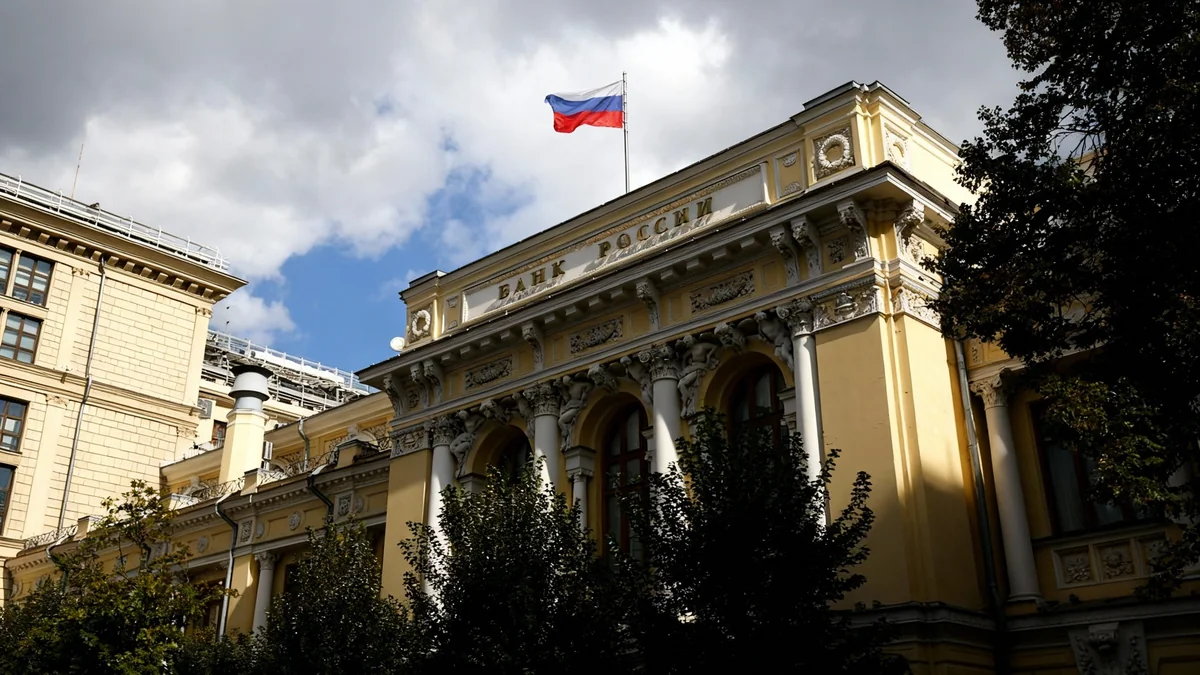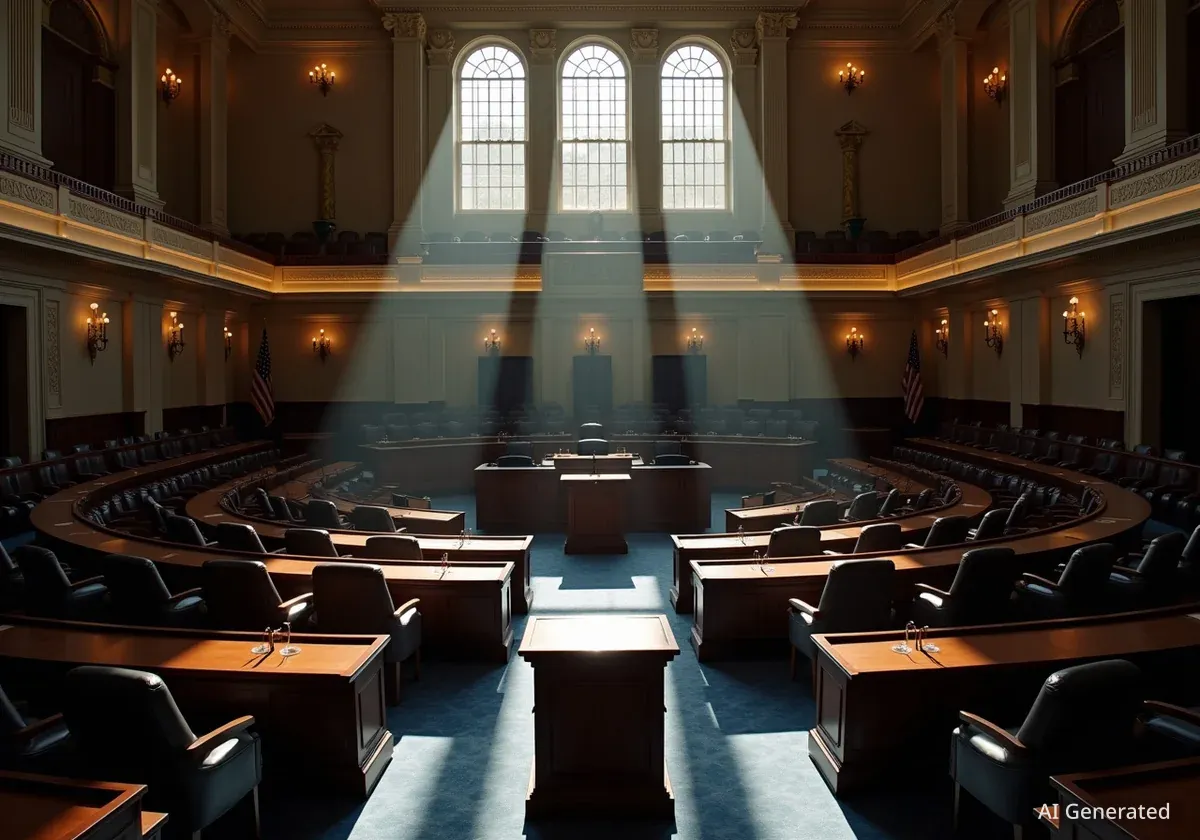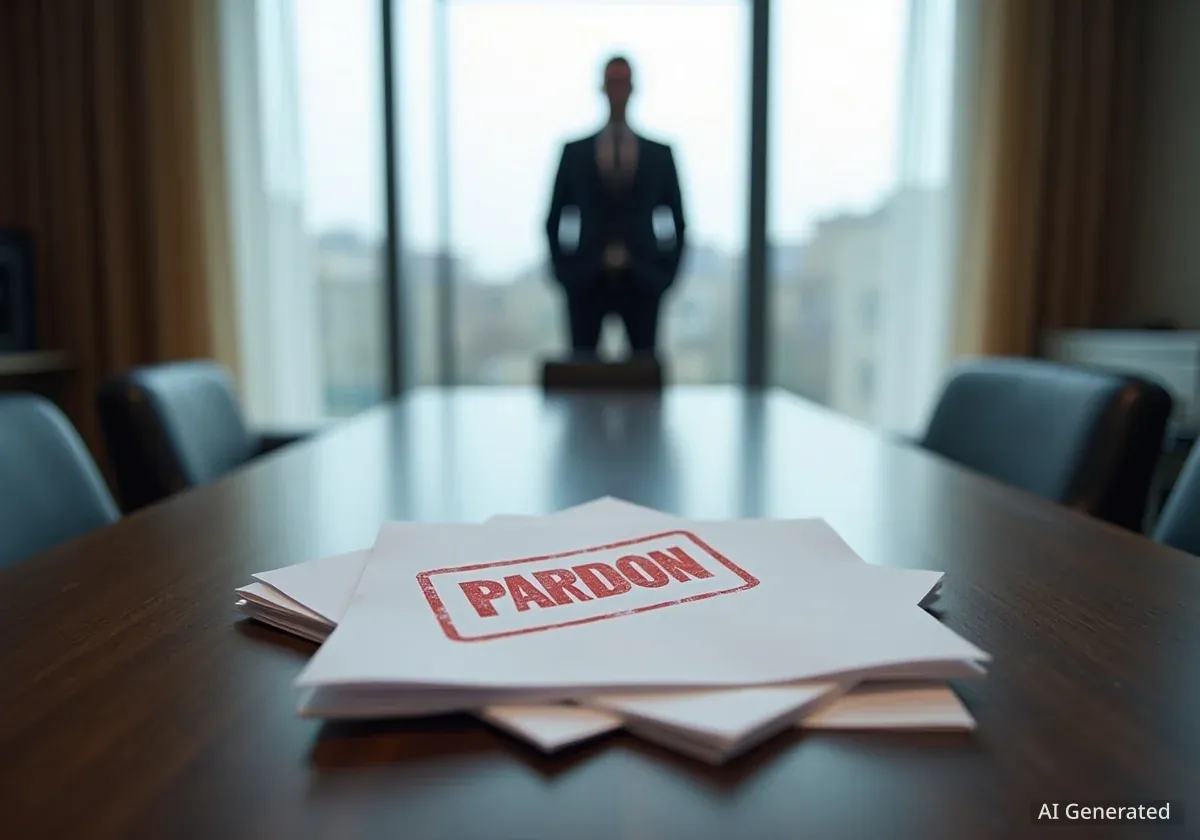The White House is engaged in high-level discussions regarding a potential presidential pardon for Changpeng “CZ” Zhao, the founder and former CEO of the cryptocurrency exchange Binance. According to sources familiar with the matter, the talks have created a significant internal debate within the Trump administration, weighing the merits of the case against the political implications of such a move.
The deliberations are complicated by the Trump family's increasing business activities within the cryptocurrency industry, some of which involve partnerships with Binance. This has raised concerns among some administration officials about the public perception of a pardon for a major figure in a sector where the president's family has financial interests.
Key Takeaways
- The Trump administration is actively considering a pardon for former Binance CEO Changpeng Zhao.
- Zhao pleaded guilty to violating the Bank Secrecy Act and served a four-month prison sentence.
- A debate within the White House centers on the political optics, given the Trump family's business ties to the crypto industry.
- Supporters of a pardon argue the charges were an overreach by the previous administration, while opponents worry about conflicts of interest.
- A pardon would clear Zhao's felony conviction, potentially allowing him to re-engage with regulated financial firms and helping Binance overturn state-level bans.
Intensified Discussions Within the Administration
Sources indicate that conversations about a potential pardon for Zhao have recently gained momentum inside the White House. Zhao, who is 48, formally petitioned President Trump for a pardon in May 2025. This followed the completion of a four-month prison sentence he served last year.
The core of the internal debate revolves around two opposing viewpoints. On one side, some officials and allies of the president believe the case against Zhao was disproportionate to the offense. They argue that a felony charge and jail time for failing to maintain adequate anti-money laundering controls represented regulatory overreach.
On the other side, some administration officials are cautious. They express concern that pardoning a figure as influential as Zhao could create a public relations challenge. "There are people in the White House who are worried about the optics and political fallout if Trump pardons someone as important as CZ to the crypto business," said one person with knowledge of the deliberations.
Background on the Case
In 2023, the U.S. Department of Justice charged Changpeng Zhao and Binance with serious violations. Zhao pleaded guilty to a single count of failing to maintain an effective anti-money laundering program, a requirement under the Bank Secrecy Act. As part of the settlement, Zhao resigned as CEO and paid a personal fine of $50 million, while Binance agreed to a landmark $4.3 billion fine.
The Legal and Financial Stakes
A presidential pardon would have significant consequences for both Zhao and Binance. For Zhao, it would erase the felony conviction from his record. This is a crucial barrier, as many highly regulated financial and investment firms are prohibited from conducting business with convicted felons.
For Binance, the company in which Zhao remains the largest shareholder, a pardon could be instrumental. Following the conviction, several U.S. states moved to ban or restrict Binance's operations. A pardon for its founder could provide the legal and political leverage needed to challenge and potentially reverse these state-level prohibitions.
Zhao himself has been public about his desire for a pardon. When news of the intensified White House discussions broke, he responded on the social media platform X, writing, "Great news if true," accompanied by emojis of praying hands. This suggests he is hopeful for a positive outcome that could restore his standing in the global financial community.
Financial Penalties
- Changpeng Zhao: Paid a personal fine of $50 million.
- Binance: Paid a corporate fine of $4.3 billion.
Political Complications and Industry Views
The primary hurdle for the pardon appears to be political. The Trump family's business ventures in the $4.2 trillion crypto market, including some reported partnerships with Binance, are at the center of the controversy. Critics, including Democratic Senator Richard Blumenthal of Connecticut, have reportedly raised concerns about the potential for a conflict of interest.
The administration must navigate the perception that a pardon could be seen as a favor to a business partner. A White House spokesperson did not respond to a request for comment on the matter. Zhao's legal team, reportedly led by attorney Tersea Goody Guillen of Baker Hostetler, also did not comment on their lobbying efforts.
The Shadow of FTX
Many in the cryptocurrency industry believe Zhao's sentence was influenced by the spectacular collapse of the FTX exchange and the subsequent conviction of its founder, Sam Bankman-Fried. Bankman-Fried is currently serving a 25-year prison sentence for fraud and misuse of customer funds.
Eleanor Terrett, editor of the Crypto In America newsletter, provided context on this industry perspective.
"CZ wasn’t accused of fraud like SBF and many industry players see his jail sentence as the result of regulators – still with egg on their faces, post-FTX – making an example out of anyone in crypto who operated in or around the US," Terrett stated.
This view holds that regulators, facing criticism for failing to detect the fraud at FTX, adopted an aggressive enforcement posture against other major crypto players. According to this narrative, Zhao was a casualty of a wider crackdown, and his punishment for a compliance failure was made more severe to send a message to the industry.
As the White House continues its deliberations, the decision will likely hinge on whether the administration views the pardon as a necessary correction of a past regulatory excess or as a political risk not worth taking.





